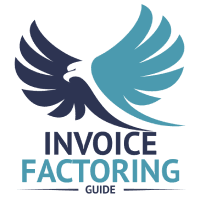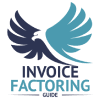The Features of Recourse and Non-Recourse Factoring
When exploring invoice factoring, you’ll come across two main types: recourse factoring and non-recourse factoring. Both can give your business the cash flow boost it needs, but they work a little differently in regard to what happens if your customers don’t (or can’t) pay what they owe.
Knowing the differences between these two types of factoring is crucial to determining which one is right for your company.
What is Recourse Factoring?
Recourse factoring is a type of invoice factoring where, if your customer fails to pay the factored invoice, the factoring provider can recover the funds from you, the client. This arrangement means you’ll share some of the risks with the factoring company, making it a more affordable option than non-recourse factoring.
What is Non-Recourse Factoring?
With non-recourse factoring, the factoring provider takes on the entirety of the risk. If your customer defaults on an invoice, the factoring provider can’t try to recover the lost funds from you. This type of factoring tends to be more expensive and may be harder to get than recourse factoring, as it could be subject to specific contractual terms and your customers’ credit histories. However, it offers the least risk to you as a client, so you have added peace of mind.

Comparing Recourse Factoring vs. Non-Recourse Factoring Features
Which Option Has Better Factoring Rates
Of the two factoring options, non-recourse factoring comes at a steeper price. This is because the factoring company will be assuming most of the risk if clients default on payments. Recourse factoring may have lower rates, but you may need to repay your factoring advance if a client cannot pay their invoice, so choosing the best option for your business is about balancing the risk and reward.
Do Both Options Offer Credit Checks?
Both recourse and non-recourse factoring options involve credit checks, but they play different roles in each type of factoring. When it comes to non-recourse factoring, the credit checks performed on your customers become crucial for the factoring company’s decision-making process. Invoices issued to higher-risk customers or specific individual invoices might not be eligible for non-recourse factoring due to the increased risk for the factoring provider.
On the other hand, recourse factoring is more lenient in terms of customer credit checks. Even if your customers have a poor or non-existent credit history, their invoices may still qualify for recourse factoring. This is because, in this arrangement, you share the risk with the factoring company. So, while credit checks are still performed, they may not weigh as heavily in the factoring provider’s decision as they would in non-recourse factoring.
Collection Efforts
In the event of a customer defaulting on an invoice, the factoring company always spearheads the collection process and needs to make every effort to obtain payment. However, with recourse factoring, if the customer fails to pay all or part of the invoice and the factor has taken all the necessary steps to collect, the factoring client (your business)becomes responsible for covering the default amount.
Invoice factoring might be the financial solution your business needs to expand and manage your operating costs. The type of factoring you select is entirely up to you and hinges on your company’s requirements. If you’re curious about invoice factoring, Invoice Factoring Guide (IFG) is here to help.
Browse our Factoring Guide to learn everything there is to know about invoice factoring in the United States. Compare some of the leading factoring companies in the area, their services, and the additional benefits they provide. Or, reach out to us for a factoring rate quote today, and we’ll connect you with the best recourse or non-recourse factoring company for your needs.
Why Healthcare Companies Choose Invoice Factoring
“The people there really care about you and I’m very happy with the service I’ve gotten.”
“Our transition has been very smooth and easy.”
“Awesomeness personified. This company saved our business. Instead of having to wait around 2 months for our payments we get them within days.”
“They give me the fast cash I need and the team there is great. My rep always takes the time to help me out.”
“I had a great experience from the onboarding to the factoring.”
“I was completely impressed with their professionalism and customer service.”
Get an instant funding estimate
Results are estimates based on the calculated rate and the total invoice amount provided.
Actual rates may vary.
Request a Factoring Rate Quote
PREFER TO TALK? Call us at 1-844-887-0300
A Network Featured by the Media






Partners Affiliated with Industry Leaders





